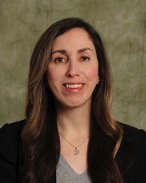Students |
Faculty |
Student Involvement
Constructive Dialogue Badge
- The Constructive Dialogue Badge equips students with knowledge and skills to engage in better conversations even when you disagree. Through online and in-person training along with personal reflection, students will better understand the psychological and metacognitive factors that shape how and why people disagree, learn skills to engage in conversations across differences and put those skills into practice.
- LEARNING OBJECTIVES Students will:
- Better understand why we disagree
- Better understand why it's hard to have good conversations when we disagree
- Develop skills to better listen to those you disagree with, including showing respect, curiosity and non-judgement
- Develop skills for better conversation, including asking curious questions
- To earn the Badge, students will:
- Complete online Perspectives modules
- Participate in a one hour in-person workshop to develop and practice skills for better conversation
- Submit a short reflection on their learning
- If you are interested in completing the Badge as an individual or offering the Badge through a course or program, please email cce@binghamton.edu.
Student Organization Uncommon Grounds
-
-
Uncommon Grounds hosts meetings open to all students with unique activities to practice civil dialogue
-
Spring semester meeting time: Monday, 7:30 – 9:00 p.m.
- Join the OPI GroupMe for updates and meeting locations:
- Follow Uncommon Grounds on Instagram to stay up to date!
-
Faculty Involvement
Applications Open for 2025-2026 Civil Dialogue Teaching Fellows
-
The Civil Dialogue Teaching Fellows program guides faculty in the design and implementation of course content that facilitates student practice of civil dialogue. Selected faculty will receive a stipend and meet several times throughout the academic year to explore how classroom activities can support student development of skills necessary to engage in dialogue about meaningful topics with people holding different points of view. Sessions will focus both on understanding relevant theoretical frameworks and on applying practices within the classroom setting.
The program is open to full-time faculty of every rank and discipline. Fellows will receive a stipend of $2,000 and are expected to integrate civil dialogue into at least one of their courses at the conclusion of their fellowship experience.
Applications for the 2025-2026 cohort are due by 5p.m. on Friday, June 6, 2025. Submit your application here.
For more information, contact Alison Twang, PhD, director, Center for Civic Engagement at atwang@binghamton.edu.
Civil Dialogue Faculty Teaching and Research Grants
Civil Dialogue Faculty Teaching and Research Grants are available to support full-time faculty of any rank and discipline with up to $3,000 in funding for expenses that contribute to and expand upon the civil dialogue initiative. Civil dialogue goes beyond general classroom discussion and requires intentional planning and preparation to create spaces where students are comfortable engaging in meaningful conversation on important topics, sharing their own perspectives and experiences, and attending to multiple points of view.
Grants are intended to strengthen student skill-building to engage in meaningful dialogue across difference, provide opportunities for students to put these skills into practice, support faculty in the development of relevant pedagogical approaches, contribute to research on civil dialogue, and more.
Allowable expenses include but are not limited to: supplies or materials for events, research stipends, research participant incentives, honoraria for speakers, training expenses, travel or field trip expenses and more.
Grant applications are accepted on a rolling basis.
For more information, contact Alison Twang, PhD, director, Center for Civic Engagement at atwang@binghamton.edu.

 Stacey Shipe
Stacey Shipe Lubna Omar
Lubna Omar
 Dana Stewart
Dana Stewart Chris Davey
Chris Davey Matthew Cole
Matthew Cole Megan Benson
Megan Benson Sarah Ford
Sarah Ford John Cheng
John Cheng Tina Chronopoulos
Tina Chronopoulos Will Glovinsky
Will Glovinsky Gina Glasman
Gina Glasman